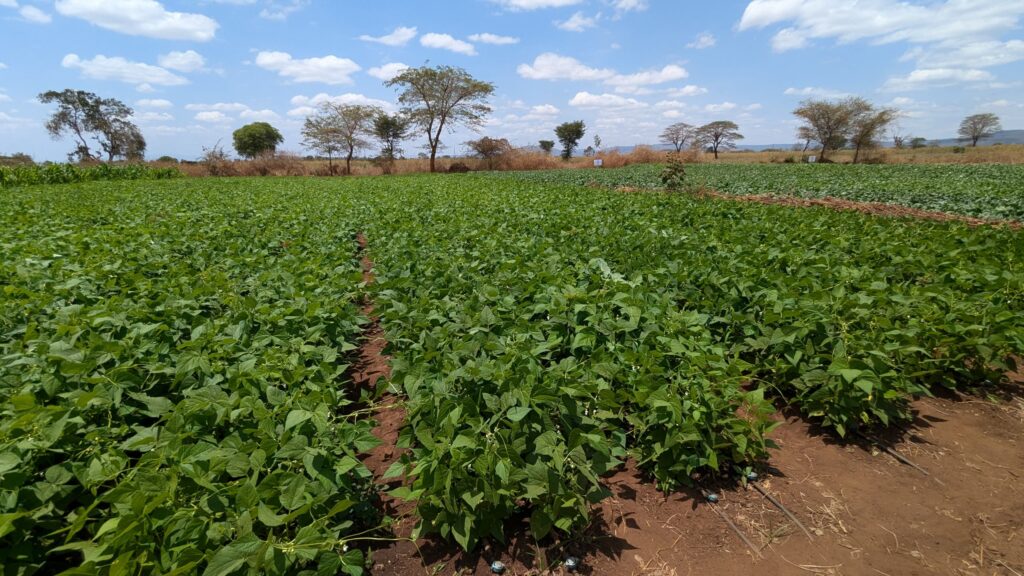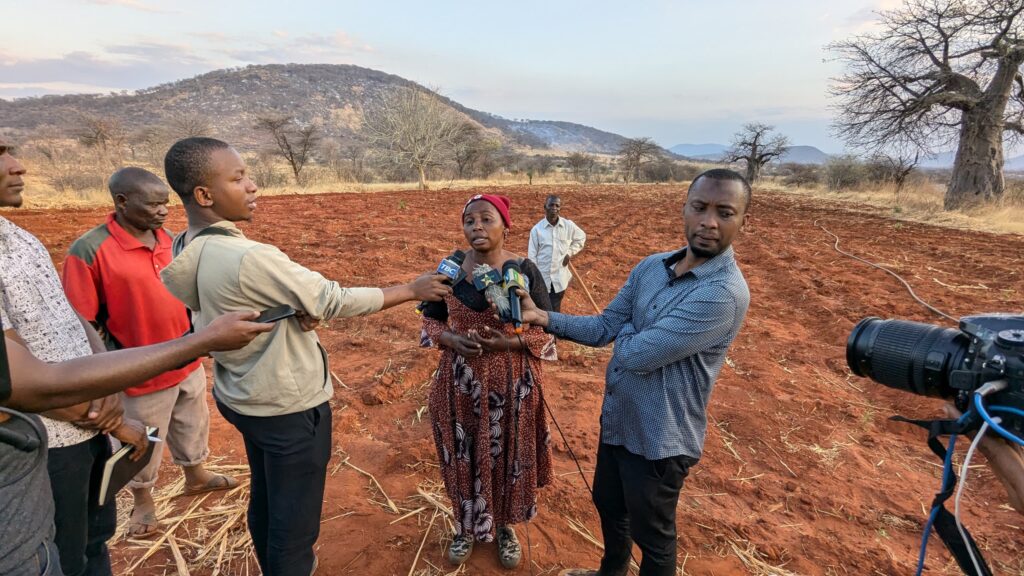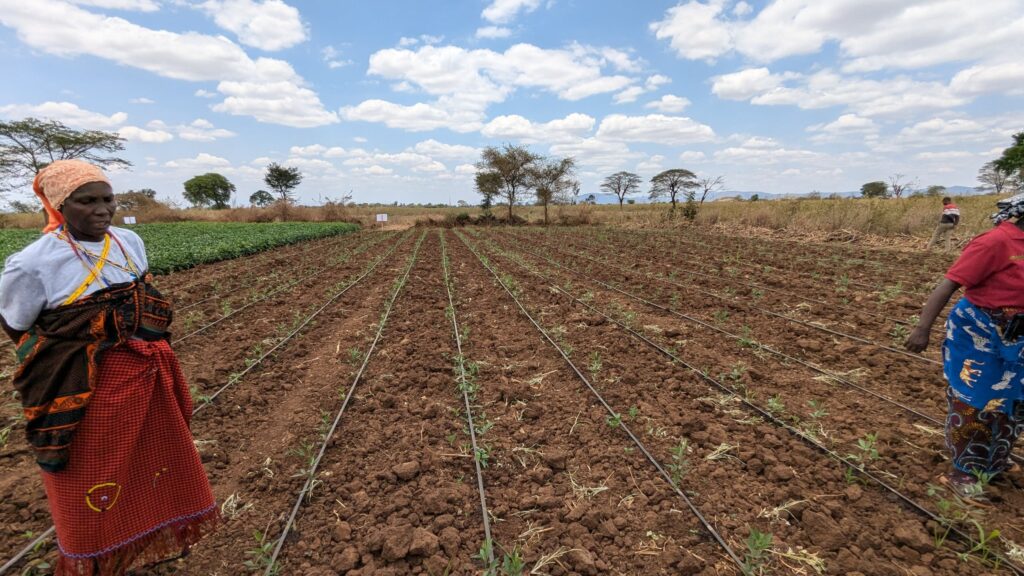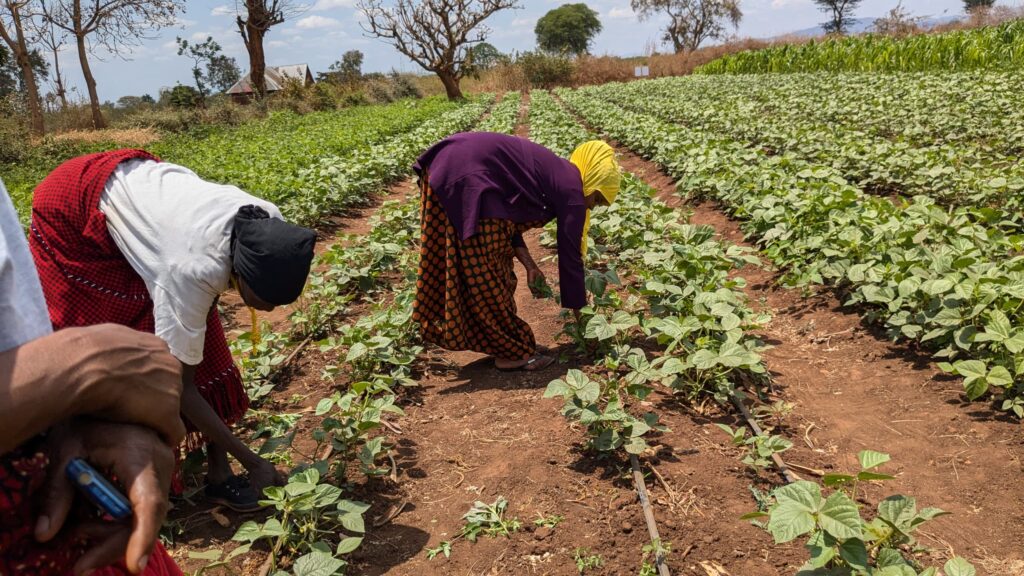Babati/Dodoma. Facing unpredictable rainfall, farmers in the Manyara and Dodoma regions have turned to drip irrigation as a solution to water scarcity.
Farmers growing leguminous crops have embraced this method after experiencing poor harvests of only three bags per hectare due to unreliable rains. As a result, many have dug wells and adopted modern irrigation techniques to ensure stable crop yields.
Recently, these farmers shared their experiences with journalists visiting the VACS project, which is managed by the Agricultural Markets Development Trust (AMDT). The project promotes demonstration farms, the use of improved seeds, and drip irrigation technology.
Asha Salim, a farmer in Gedamar village, Manyara, who grows green grams, explained that she shifted to irrigation after the unpredictable weather patterns made rain-fed farming unreliable.

Before using drip irrigation, she harvested only one sack or four bags per quarter acre. However, since adopting drip irrigation in 2023, her yields have increased significantly.
“I have been farming for four years without any real success, but now I can harvest three sacks from my quarter-acre farm. I use improved seeds and can farm four times a year,” Asha said.
Similarly, Fatuma Idd, a pigeon pea farmer, highlighted how drip irrigation has provided her with more reliable harvests compared to when she relied solely on rainfall. She had struggled with poor yields for years but now enjoys the benefits of modern irrigation.
Dodoo Matambo, a cowpea farmer from Galapo Ward in Manyara, shared his experience of overcoming drought by digging a well. He now farms on his one-and-a-half-acre plot four times a year. Matambo noted that his economic situation has improved significantly due to the increased productivity.
“Many farmers turned to irrigation after facing drought because with traditional farming, you can only harvest once a year. With irrigation, I now harvest more than four times,” Matambo stated.
George Manyika, a farmer from Seluka village in Mpwapwa, echoed these sentiments, explaining that irrigation provides a reliable water source for crops compared to seasonal rains, which can be either excessive or insufficient.

Oziniely Benego, a farmer and secretary of the Mkoka Irrigation Group in Kongwa, also highlighted the group’s efforts to embrace drip irrigation with the support of AMDT.
“We have planted 41 acres of sunflowers, maize, vegetables, beans, and cowpeas. With proper irrigation, we now harvest between five and eight bags per acre, compared to just two or three bags before using drip irrigation,” said Benego.
He added, “Irrigation farming is more reliable than rain-fed farming, where you gamble with the amount of rain. With irrigation, crops receive water at the right time”.
Victoria Mwelya, from Mkoka, emphasized how drip irrigation allows crops to receive adequate water, improving yields. She pointed out that drip irrigation also saves time compared to manual watering, allowing farmers to engage in other activities.
Benson Mgonela from Chipogolo Ward explained that the introduction of drip irrigation has greatly helped farmers who were previously unaware of modern techniques.
Pendo Makupa, a pigeon pea farmer from Seluka village, praised the drip irrigation technology, explaining that it ensures each plant receives the necessary amount of water at the right time.

Zabron Mbwaga, the director of Beula Seed Production Company in Arusha, noted that pigeon pea crops were previously withering due to drought, but the adoption of drip irrigation has changed that. He identified a challenge where farmers in drought-stricken areas were using low-quality seeds.
“The farmers here, who grow leguminous crops, were using unresearched seeds and replanting them season after season. This practice led to seed diseases and declining productivity every year,” Mbwaga explained.
“Our goal is to introduce improved technology for farmers, starting with quality seeds and drip irrigation, to allow year-round farming through wells”.
Delta Shila, Monitoring and Evaluation Coordinator at AMDT, said that the organization is committed to supporting Tanzanian farmers in adopting more productive farming methods. She explained that the VACS project is being implemented in Dodoma, Manyara, Arusha, and Kilimanjaro, where they are training lead farmers to teach their peers.
“We have built the capacity of 30 lead farmers, and the goal is to reach 800 farmers. So far, we have trained 600 farmers,” Shila said.
“We are empowering farmers to plant drought-resistant seeds and installing drip irrigation systems. We want to ensure that farmers do not stop producing due to a lack of rain”.


